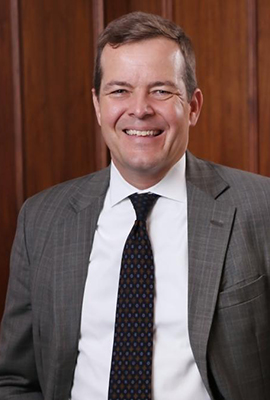 On Monday, October 28, 2019, the Dean Rusk International Law Center and the Georgia Journal of International and Comparative Law at the University of Georgia School of Law will host a daylong conference to explore “The Future of Space Governance.” The conference will feature a keynote speech by Professor Emerita Joanne Irene Gabrynowicz, University of Mississippi School of Law, as well as panel discussions by academics and practitioners.
On Monday, October 28, 2019, the Dean Rusk International Law Center and the Georgia Journal of International and Comparative Law at the University of Georgia School of Law will host a daylong conference to explore “The Future of Space Governance.” The conference will feature a keynote speech by Professor Emerita Joanne Irene Gabrynowicz, University of Mississippi School of Law, as well as panel discussions by academics and practitioners.
Participants will consider the following concept note:
International legal frameworks governing outer space developed under the conditions of a bi-polar, Cold War world, where the two great powers were the only spacefaring nations, and were engaged in a feverish race to space. The international agreements reflect the concerns of the time, primarily to prevent militarization and colonization of outer space. It seemed essential to keep the cold war out of space, and to keep it from going hot. Then, the U.S. made it to the moon, winning the race and effectively freezing space governance in Cold War terms.
Exactly half a century later, the world has changed, and so has space. A bi-polar world has gone multipolar, and an optimistic period of multilateralism has given way to a decline in robust international cooperation. Meanwhile, developments in outer space have exploded in complexity, ambition, and commercial promise. The number of entrants and potential entrants has proliferated: seventy-two nations now claim they have space agencies, and at least fourteen have orbital launch capabilities. One of the key new entrants is China, which is busy exploring the dark side of the moon and plans a permanent Chinese lunar colony as early as 2030. India, too, is broadening its ambitions, launching a moon lander trip this year, and planning for manned spaceflight and a space station launch soon thereafter. The SpaceX program is making rocket launches available for bargain basement prices, bringing space activities within the reach of a gaggle of startups keen to grab their piece of the commercial pie. Other commercial actors imagine space tourism, colonies, and missions to Mars. At the same time, the United States, still the dominant player in space, has announced plans to launch a “Space Force,” aimed at defense of U.S. military interests from space.
Fifty years after the first moonwalk, the prospect for a new set of multilateral agreements governing outer space is remote, yet the legal questions raised by new space activity are mounting. With little prospect of new multilateral treaties, outer space governance will need to make do with existing law, generate customary rules to govern new applications, and develop forms of sublegal understanding and cooperation.
This conference takes a stakeholder approach to emerging questions of outer space governance. It seeks to understand the perspective and concerns of classic space powers, new entrants, non-space faring nations, and international organizations like the Committee on the Peaceful Uses of Outer Space, as well as civilian space agencies, national militaries, and commercial actors. It asks for views on the sufficiency of existing law and governance structures and probes the legal needs of new and existing stakeholders. It will explore the agendas of the growing collection of actors, and attempt to find new prospects for governance.
Here’s the schedule:

8:45-9:00 Welcome
Peter B. “Bo” Rutledge, University of Georgia School of Law
9:00-10:30 New Entrants: Nations
What are the emerging governance challenges as new nations emerge as space-farers?

Steven Mirmina, NASA
Saadia Pekkanen, University of Washington, Henry M. Jackson School of International Studies
Cassandra Steer, Women in International Security Canada
Charles Stotler, University of Mississippi School of Law

Moderator ǀ Harlan G. Cohen, University of Georgia School of Law
10:45-12:15 New Norms? Commercial Actors
What norms govern, or should govern, potential commercial uses such as extraction, tourism, and settlement?
Julia Selman Ayetey, McGill University
Frans von der Dunk, Nebraska College of Law
Brian Israel, ConsenSys
Mark J. Sundahl, Cleveland-Marshall College of Law

Moderator ǀ Melissa J. Durkee, University of Georgia School of Law
 1:15-2:00 Keynote
1:15-2:00 Keynote
Professor Emerita Joanne Irene Gabrynowicz, University of Mississippi School of Law
2:15-3:45 New Uses: Security in Space
What are the appropriate responses to the new U.S. “Space Force” and other threats of space militarization?

Mariel Borowitz, Georgia Tech, Sam Nunn School of International Affairs
David Kuan-Wei Chen, Center for Research in Air and Space Law, McGill University
James Gutzman, United States Air Force
Andrea Harrington, Air Command and Staff College, Air University

Moderator ǀ Diane Marie Amann, University of Georgia School of Law
 3:45-4:00 Closing Remarks
3:45-4:00 Closing Remarks
Lauren Elizabeth Lisauskas, Editor-in-Chief, Georgia Journal of International and Comparative Law
Registration, CLE credit, and other details here. Additional cosponsors include the International Law Society, Georgia Law’s chapter of the the International Law Students Association.









 On Monday, October 28, 2019, the Dean Rusk International Law Center and the Georgia Journal of International and Comparative Law at the University of Georgia School of Law will host a daylong conference to explore “The Future of Space Governance.” The conference will feature a keynote speech by Professor Emerita
On Monday, October 28, 2019, the Dean Rusk International Law Center and the Georgia Journal of International and Comparative Law at the University of Georgia School of Law will host a daylong conference to explore “The Future of Space Governance.” The conference will feature a keynote speech by Professor Emerita 




 1:15-2:00 Keynote
1:15-2:00 Keynote

 3:45-4:00 Closing Remarks
3:45-4:00 Closing Remarks A speech that noted human rights lawyer
A speech that noted human rights lawyer